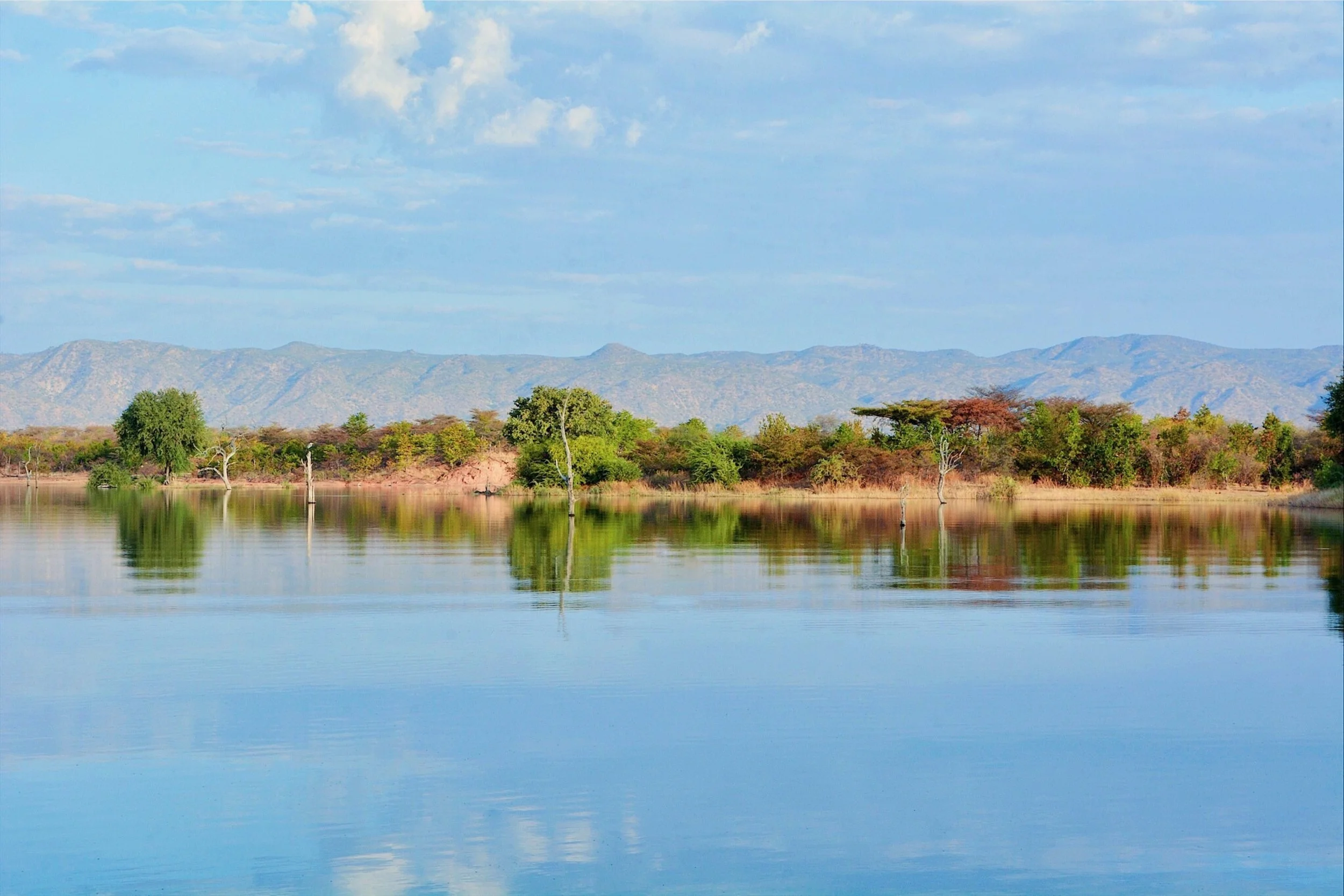Zimbabwean authorities tackle illegal fishing in Lake Kariba
As first appeared in Zim Morning Post, here. Written by Farayi Machamire.
December 18 2022
Tonnes of twine and illegal boats seized in latest raid in the ongoing battle
The lake supports licenced artisanal fisheries, but illegal fishers increasingly slip through the cracks.
I
mage by Arpit Rastogi.
Sixty-four-year old Ephraim Simuguga Masainda is wary of the threat of crocodiles and hippos each morning he drains his net for fresh catch in the waters of Lake Kariba, the world’s largest artificial lake and reservoir by volume.
The threat to his life weighs less on his shoulders than the disappointment of failing to fend for his family, he says.
But as one 27 permit holders at Kings Camp – part of a number settlements on the shores of Lake Kariba – that is not the only hurdle that makes his heart palpitate.
Fishing camps, including those on the northern edge of Matusadona National Park, offer communities’ legal commercial fishing while inadvertently providing cover for illegal fishing.
It is little wonder why illegal fishermen in both modern and makeshift boats operate on Lake Kariba without fishing permits and catch fish indiscriminately regardless of size and species.
The predicament has seen Matusadona National Park law enforcement authorities carry out 360 arrests and confiscate over 100 small makeshift boats.
Pointing to some of the over 100 confiscated small boats, Matusadona National Park field operations manager Michael Pelham says his heart bleeds each time they make an arrest.
“This is roofing sheets, corrugated iron, this is why it is heart-breaking when you make these arrests. Can you imagine how desperate some people are to come fishing on this Lake with this boat?” he says.
With the lake levels receding the Parks employees are picking up tons of long discarded monofilament fishing line, tangled up in weeds. It remains unclear how much these nets have affected the ecosystem.
What is striking though is that nationals from both Zimbabwe and Zambia have been caught on the wrong side of the law, more so on the Zimbabwean side of Lake Kariba which has about 1 000 kms of shoreline and possesses more protected areas than in Zambia.
Lake Kariba Fisheries Research Institute (LKFRI) officials note in their Annual Fisheries Statistics Report that in 2018 fish recovered from poachers weighed 190 kilograms.
Fish recovered from poachers in 2019 went up to 214 kilograms before picking up a further 722,35 kilograms in 2020.
Eight rigs were impounded in 2018, seven in 2019 and 32 in 2020.
The Lake supports commercial kapenta fishery, small-scale artisanal (gillnet) fishery and access into any of the fisheries is through a permit.
Masainda who has been relying on commercial fishing for over two decades says addressing illegal fishing will positively contribute to the equitable growth and empowerment of the people who rely on the Lake for food and income.
“While we encounter problems of crocodiles tearing our nets and the threat of hippos as well as the threat of having our boats caught in trees due to the receding of the Lake in recent times, we are really concerned that our fishing ground is being affected by poaching activities,” says Masainda.
Peter Kanyemba, 61, who has been operating out of Kings Camp since 1992 says there has been a great momentum for change with the collaboration of Zimbabwe Parks and Wildlife Authority (ZimParks) and African Parks who jointly run Matusadona National Park.
“We are doing our best to adhere to legal provisions. We don’t fish every full moon. We don’t fish at night and we respect designated breeding areas,” Kanyemba says.
Elsewhere on the Lake, Bumi Hills Anti Poaching Unit (BHAPU) notes “seeing an increase in poaching activity on the islands within Lake Kariba.”
“Boats are submerged during the day, usually weighted down with rocks then once the sun goes down they are refloated under the cover of darkness,” BHAPU says in a recent statement.
A sting operation launched by BHAPU in conjunction with the Zimbabwe Republic Police, earlier this month, netted 86 twine nets of various lengths, totaling over 15 000 metres (15 kilometres) of net.
At the same time Matusadona National Park’s anti-poaching unit has so far this year recovered 24,031 metres of cotton net up from 15,100 in 2020 as well as 68,240 metres of twin nets up from 53,800 in 2020.
“I think the difficult thing is that we have a growing human population and a lot of the people living in this area are very poor so they desperately need money and food and obviously fish is a great source of protein,” Pelham adds.
“But at the same time we have an ecosystem here that needs to be protected and what we are seeing worldwide is that there is more and more pressure on our marine systems.”
Pelham says the challenge of illegal fishing and threat of other wildlife crimes is being addressed by an increased law enforcement presence as well as community engagement and development initiatives.
He added that by working with communities the joint venture between Africa Parks and ZimParks had begun reinforcing fishing permit laws and improving the understanding of sustainable fishing practises.
“To maintain an ecosystem you need to have protected areas. Now it’s becoming more and more difficult because people are seeing protected areas and are seeing easy fishing there. And there are great fish around the national park, but if we don’t look after it the whole ecosystem will collapse,” Pelham says.
“The laws we are implementing are not our laws, they are the governments. And the laws are not coming out of fresh air, they are coming out because there are some incredible institutions that are doing studies on what is sustainable off take and what are the sustainable number of permits that can be issued.”
ZimParks and African Parks run Matusadona National Park in a Public Private Partnership with the State being the owner of Matusadona National Park responsible for legislation and policy.
African Parks execute management functions and is accountable to the State for performance.
“We have always been saying conservation is a joint effort and this project is also helping the communities not only helping human wildlife conflict but is also helping on the lake shores and we have been seeing the results,” says ZimParks spokesperson Tinashe Farawo.
Farawo said over exploitation severely affects aquatic ecosystems and is among the most serious environmental issues worldwide.
He adds Zimbabwe has not been spared from threats on the country’s marine resources but all hands were being put on deck to avert a conservation crisis.
“Our fisherman and woman have been complaining of low catches. We jointly patrol this Lake with our partners across the border and we have also been pushing for harmonisation of laws with our counterparts and we continuously engage so that we look after this Lake,” he says.
“This is our God-given heritage. We don’t want our children to be told stories that once upon a time we had such species.”
This article is reproduced here as part of the African Conservation Journalism Programme, funded in Angola, Botswana, Mozambique, and Zimbabwe by USAID’s VukaNow: Activity. Implemented by the international conservation organisation Space for Giants, it aims to expand the reach of conservation and environmental journalism in Africa, and bring more African voices into the international conservation debate. Written articles from the Mozambican and Angolan cohorts are translated from Portuguese. Broadcast stories remain in the original language.

